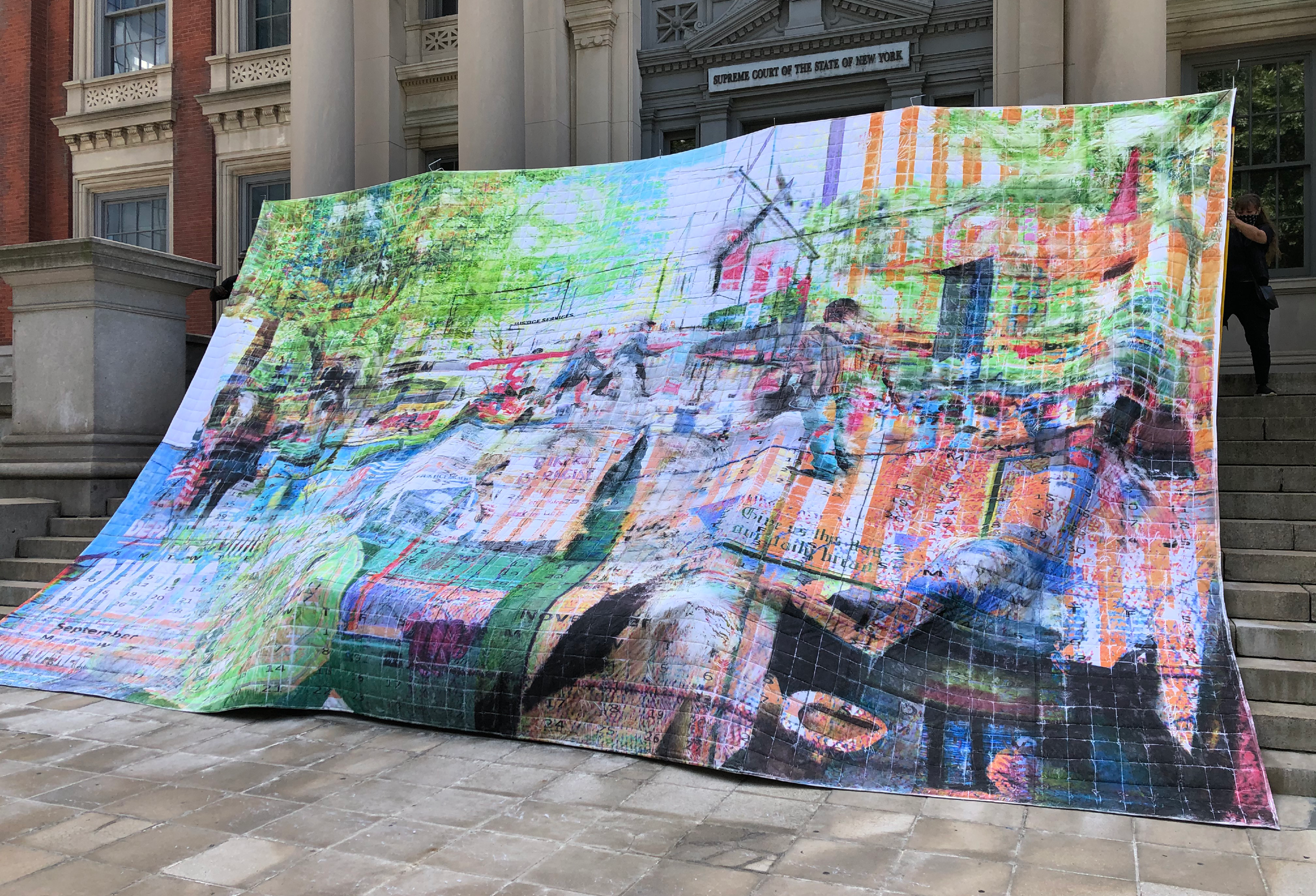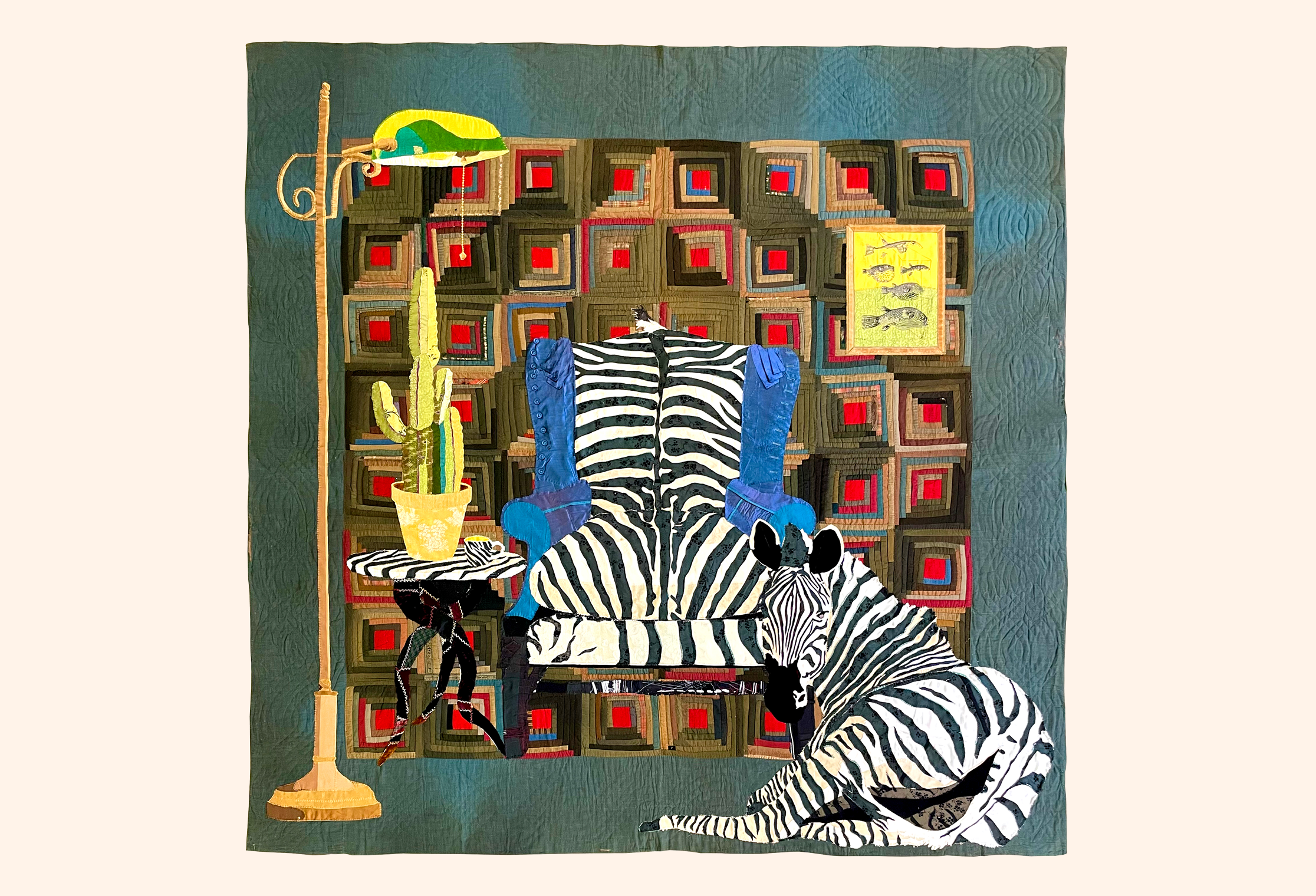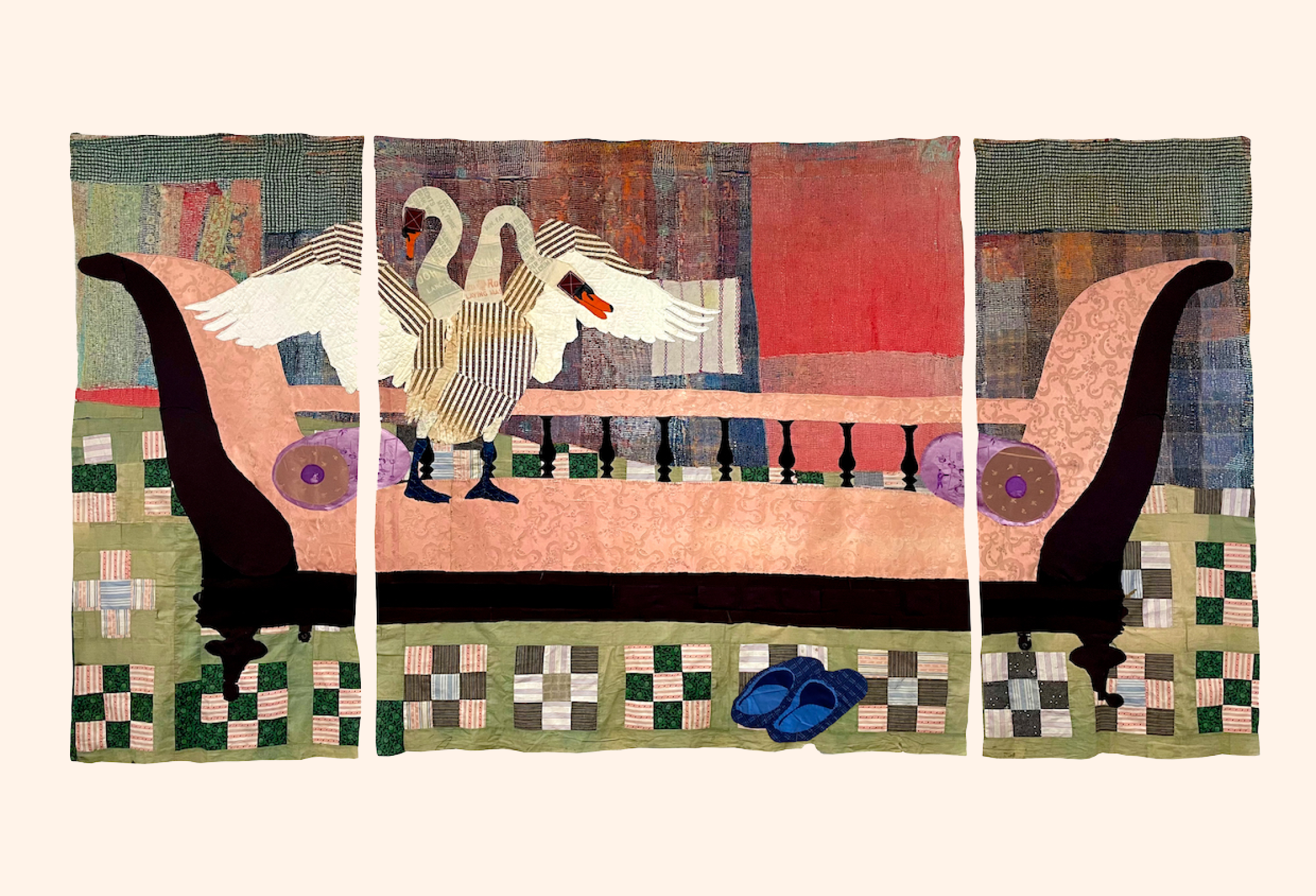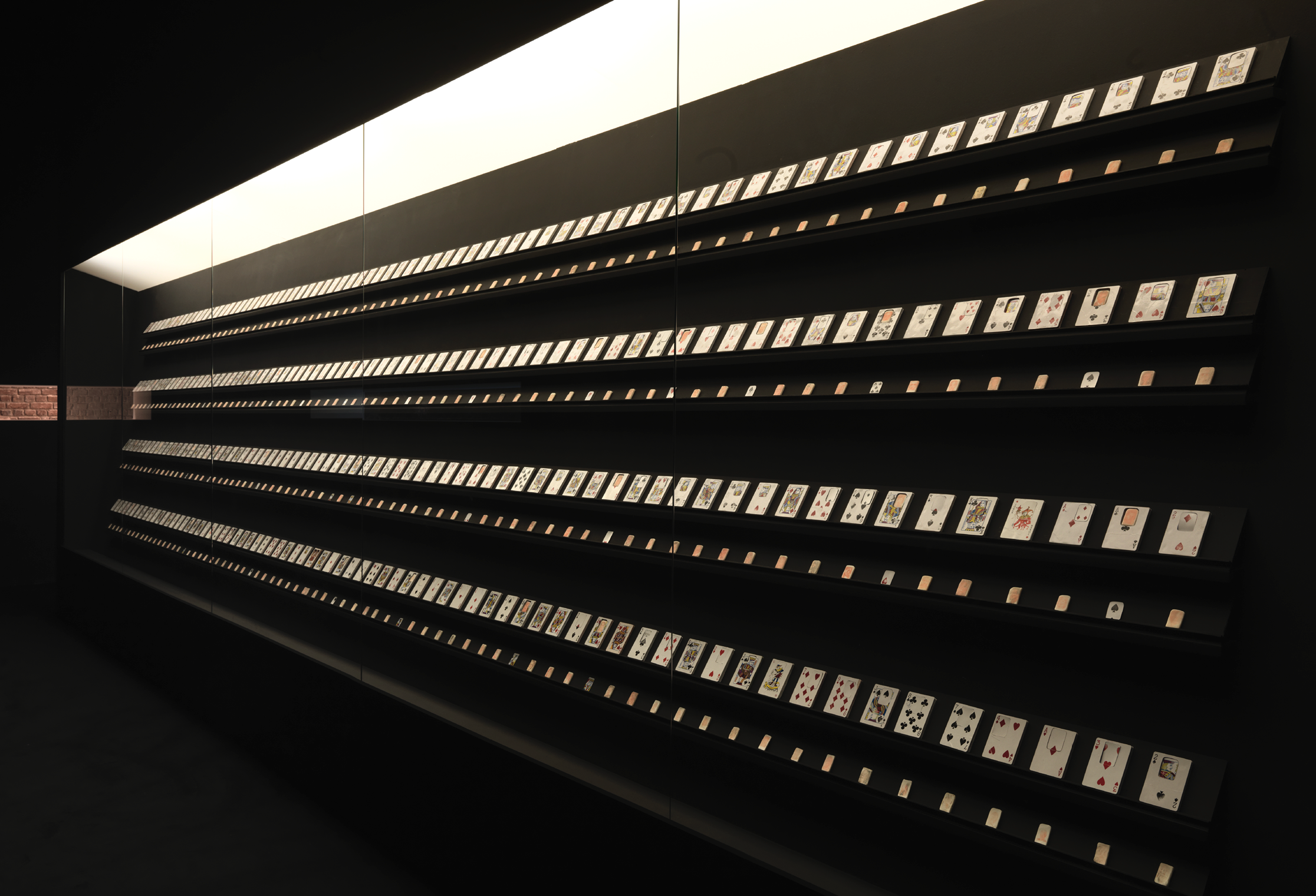Jesse Krimes is a Philadelphia based artist and curator whose work explores how contemporary media shapes and reinforces societal mechanisms of power and control, with a particular focus of criminal and racial justice. While serving a six-year prison sentence he produced and smuggled out numerous bodies of work, established prison art programs, and formed artist collectives. After his release, he co-founded Right of Return USA, the first national fellowship dedicated to supporting formerly incarcerated artists.
Krimes’ work has been exhibited at venues including the Brooklyn Museum, MoMA PS1, Palais de Tokyo, Philadelphia Museum of Art, International Red Cross Museum, Newport Art Museum, Zimmerli Museum, ICA San Jose, and Aperture Gallery. He was awarded fellowships from the John Simon Guggenheim Memorial Foundation, Pew Center for Arts and Heritage, Creative Capital, Art for Justice Fund, Robert Rauschenberg Foundation, Independence Foundation, Captiva Residency, and Vermont Studio Center.
Krimes work is in the permanent collections of the Brooklyn Museum, Kadist Foundation, Bunker Artspace, OZ Art NWA, and the Agnes Gund Collection. In addition to his independent practice, he successfully led a class-action lawsuit against JPMorgan Chase for their predatory practice of charging people released from federal prison exorbitant fees.
He has received public commissions from Amnesty International, Eastern State Penitentiary, and Mural Arts Philadelphia. Krimes established and curated Reimagining Reentry, a citywide public art project with Mural Arts Philadelphia and corresponding exhibition Rendering Justice, at the African American Museum of Philadelphia in 2020. He also curated HBO’s OG Experience, an exhibition connected with the release of the film “OG,” featuring more than twenty formerly incarcerated artists in 2019.



